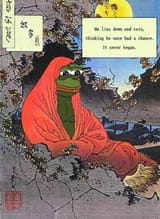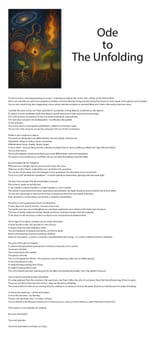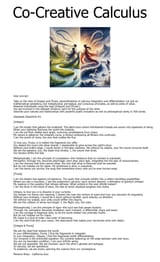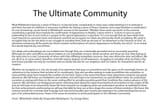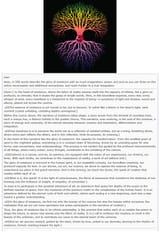>>24505311
Just as permanence and timelessness are mutually implicating concepts, so is change and relationality. For example "motion in itself" is a completely meaningless concept, as motion is defined as a relationship between multiple entities. Instead of there being an unchanging "ground" that is the foundation of relational change, entities are inherently situated in a web of relationality and interaction and this is the fundamental nature of reality.
If change is the nature of all things, and calculus is the mathematical study of change, could it be possible that the fundamental theorem of calculus which describes integration and differentiation as inverse operations of the same process be _one expression_ of a first metaphysical principle?
It works really, REALLY well. The picture here
>>24504896 describes some of the intuitive relationships involved with considering the FToC as a first principle. But the biggest insight comes from applying it as a principle of conscious perception.
We percieve change in two mutually necessary and interdependent "reference frames" or fundamental perspectives: instantaneous change in the ever-unfolding flex of an omnipresent experiential moment (differentiation) and cumulative change over time (integration.) Differentiation is the mode of our contemporary sense-experience, *our exposure to novel information,* while our experience of time is inherently narrative in nature: experience of stories of change over time.
The attempt to "transcend language" and have purely "direct experience" of the world as an exercise in folly, the same as the attempt to "transcend sense-experience." Both perspectives are mutually fertilizing and necessary for the evolution of effective understanding.
Our experience of instantaneous change is the mutational aspect of consciousness, altering our minds by exposure to novel data. The mode of narrative, of cumulative change is the mode of selection: items of experience (past, present, and future hypotheticals) are integrated into a coherent goal-directed narrative according to the selection criteria of one's desires. Consciousness uses the same creative alchemy as biological evolution, AND as described this is the creative alchemy of existence itself, the reason for the universe's profound trend towards increasing complexity and freedom (increasing variety of possible interactions.)

